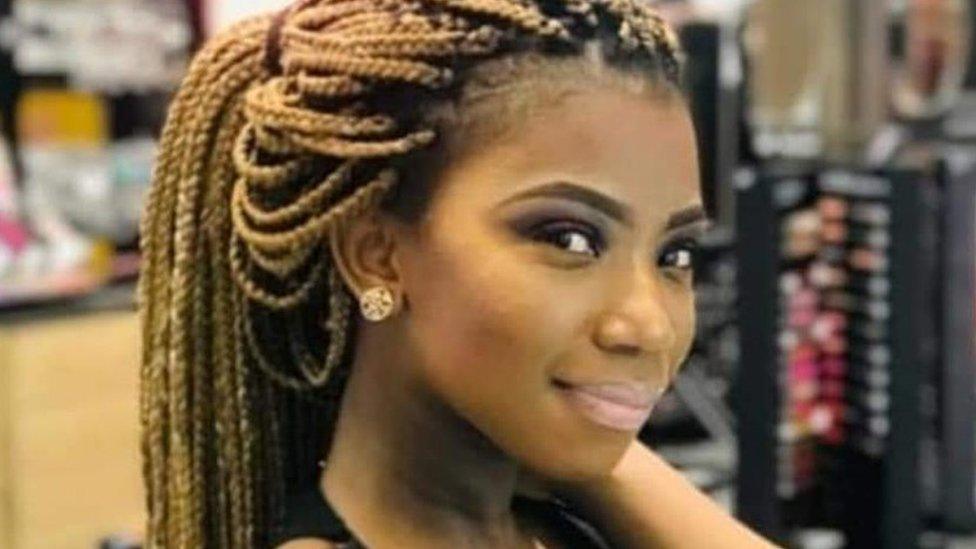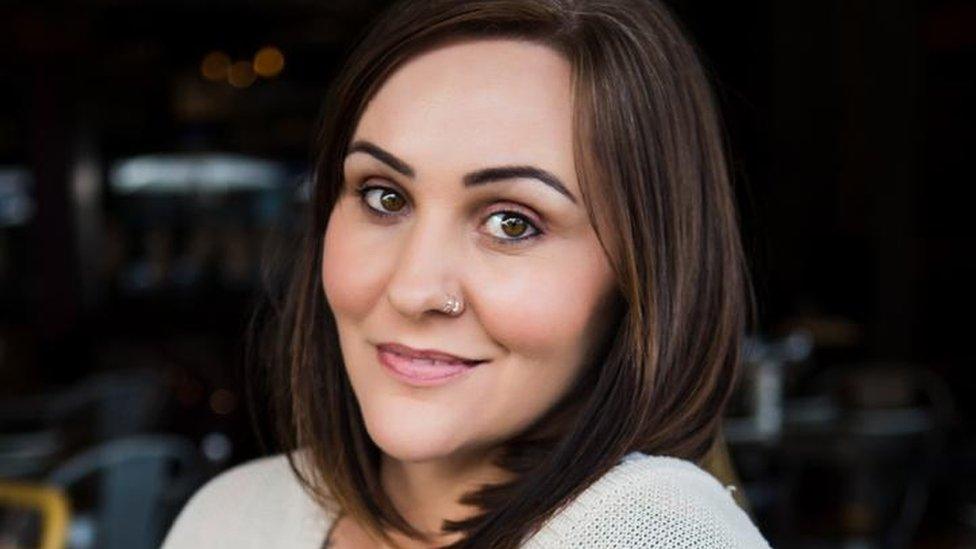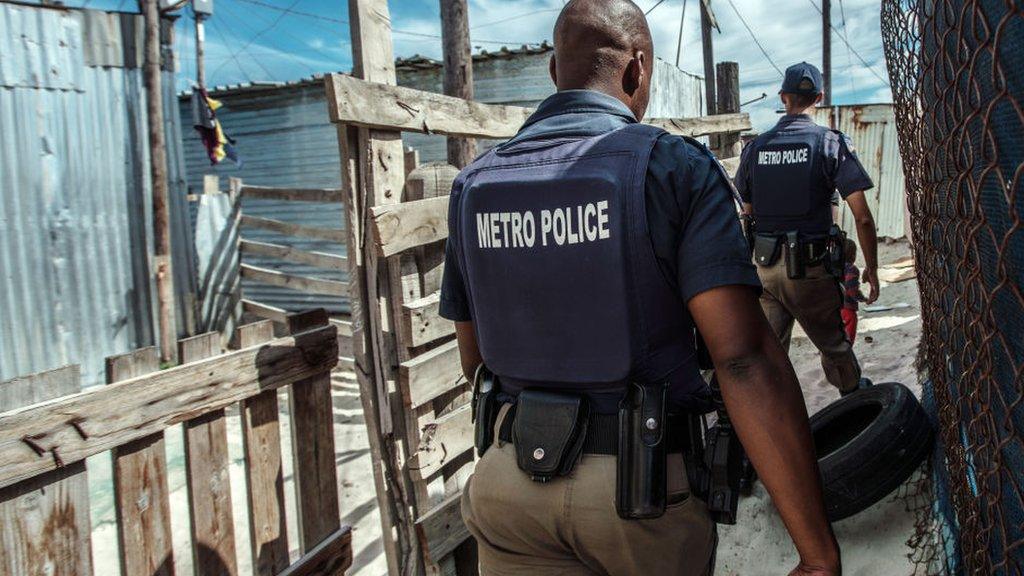Tshegofatso Pule killing: South African man on murder charge
- Published

Tshegofatso Pule was missing for four days before her body was found
A 31-year-old man has been charged with the murder of a South African woman whose stabbed body was found hanging from a tree last week.
Twenty-eight-year-old Tshegofatso Pule was eight months pregnant.
Mzikayise Malephane appeared in court and was charged with premeditated murder.
After her death, South African President Cyril Ramaphosa said the culture of silence around gender-based violence had to end.
Ms Pule went missing on 4 June and four days later a member of the public found her body in the Johannesburg suburb of Roodepoort.
She was hanging from a tree and had been stabbed through the chest.
There was a wave of outrage in South Africa after Ms Pule's death and the hashtag #JusticeForTshego trended on Twitter.
What happened in court?
Mr Malephane was arrested on Monday and appeared in court on Wednesday.
In the short appearance he was not asked to plead, reports the newspaper The Sowetan.
The case has been postponed until 24 June to allow him to get legal representation.
The authorities have not revealed if he was known to the deceased.
The police have appealed to the public to assist with the investigation - they suspect that more people were involved.

'Men need to be part of the solution'
By Pumza Fihlani, BBC News, Johannesburg
The past few days have been difficult for the women of South Africa.
At a time when the nation's focus has been on containing the spread of coronavirus, the gruesome murders of women like Tshegofatso Pule have been a harsh reminder of the daily violence women face here.
President Cyril Ramaphosa has described gender-based violence as the shame of the nation.
His government has in the last few months channelled more resources towards the fight.
Some of the extra funding has gone towards training the police, some towards special sexual offences courts.
But advocates say there should be more focus placed on prevention and, for that, attitudes towards women need to change.
That is something that will need more than hashtags and protests, it needs men to be part of the solution, they say.

South Africa's gender crime crisis
South Africa's Diepsloot township: 'My neighbour is a rapist'

South Africa - 'unsafe to be a woman'
On Saturday President Ramaphosa released a statement denouncing gender-based violence.
He said it had become more dangerous for women during South Africa's lockdown.
"We note with disgust that at a time when the country is facing the gravest of threats from the [coronavirus] pandemic, violent men are taking advantage of the eased restrictions on movement to attack women and children," he said
Mr Ramaphosa condemned the brutality of recent killings, mentioning Ms Pule and two other victims:
Naledi Phangindawo - the 25-year-old was stabbed to death in the harbour city of Mossel Bay last Saturday. Those using the hashtag #JusticeforNaledi want the suspect, who is now in police custody, to be denied bail. He is believed to be her partner.
Sanele Mfaba - the young woman had been dumped under a tree in Johannesburg's Soweto township on Friday.
As many as 51% of women in South Africa had experienced violence at the hands of someone they were in a relationship with, the president's statement said.
He urged people to report crimes.
"Gender-based violence thrives in a climate of silence. With our silence, by looking the other way because we believe it is a personal or family matter, we become complicit in this most insidious of crimes," President Ramaphosa said.
Following an outcry over a spate of femicides last year, President Ramaphosa said South Africa was one of "the most unsafe places in the world to be a woman".
- Published12 September 2019

- Published12 September 2019

- Published9 August 2018

- Published9 July 2024
